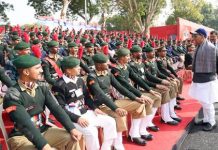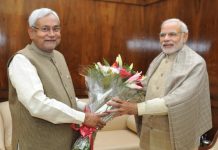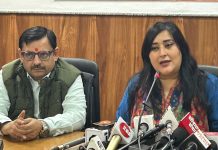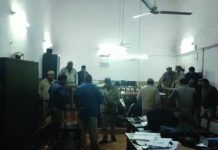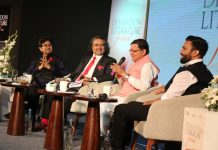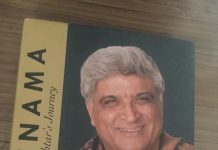The recent amendment to Rule 93 of the Conduct of Election Rules, 1961, has sparked outrage among opposition parties and activists, who allege that it curtails electoral transparency by restricting public access to vital election-related records. A report by Mudit Mathur
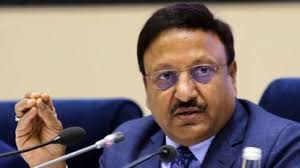
The Ministry of Law and Justice on December 20, 2024, amended Rule 93 of the Conduct of Election Rules, 1961 triggering political controversy concerning people’s right to inspect and procure a trail of records conducting elections. While the EC said the amendment aims to restrict access to electronic data, the opposition and transparency activists have been up in arms, branding it as an attack on the right to information and electoral freedom. The Congress party is planning to challenge it before the Supreme Court.
The amendment altered a crucial provision aimed to ensure transparency in the electoral process, acting on the Election Commission of India’s recommendation, and notably, without any public deliberation with political parties or stakeholders. Surprisingly, the Union government immediately notified it without consultation. It may be mentioned that the recent assembly elections in Haryana and Maharashtra came under cloud amid serious allegations of rigging, EVM manipulations, suspicion over a hike in vote percentage, mass deletion of registered voters and misuse of government machinery following highly unexpected results.
The amendment came in the teeth of the orders of the Punjab and Haryana High Court given on December 9, 2024, by Justice Vinod S. Bhardwaj, on the writ petition filed by an advocate Mehmood Pracha to supply the videography, CCTV footage and copies of Forms 17-C Parts I and II, pertaining the conduct of Haryana Legislative Assembly Elections, 2024 within six weeks of submission of application on the payment of requisite charges.
The petitioner Mehmood Pracha, through his video appearance, argued that as per the provisions of the Conduct of Election Rules, 1961, the only distinction cast between a candidate and any other person is that while the documents have to be supplied free of cost to a candidate who contested the election, the documents are to be supplied to any other person subject to payment of the fee as may be so prescribed and he is ready for it.
Instead of complying with the orders of the High Court, the Election Commission of India recommended amending the concerned Rule 93 of the Conduct of Election Rules, 1961, to restrict the type of “papers” or documents open to public inspection which now restricts public access to certain election-related documents, including CCTV footage, webcasting data, and video recordings of candidates during elections.
The amended Rule 93 (2) (a) now states that “all other papers as specified in these rules relating to the election, shall be open to public inspection,” whereas previously, it allowed public inspection of all papers related to the election without any exceptions. The government amended Rule 93(2)(a) to restrict the type of “papers” or documents open to public inspection. The amendment inserted the phrase “as specified in these rules” after “papers”.
Rule 93 (2) before the above discussed amendment provided that subject to such conditions and to the payment of such fee as the Election Commission may direct, — All other papers relating to the election shall be open to public inspection; and copies thereof shall on application be furnished.
Clarifying the stand of the Election Commission, it has been stated officially, “There have been instances where such electronic records have been sought, citing the rules. The amendment ensures that only papers mentioned in the rules are available for public inspection and any other document which has no reference in the rules is not allowed for public inspection.”
“The misuse of CCTV camera footage from inside polling booths could compromise voter secrecy. Also, there are chances that this footage could be used to create fake narratives using AI technology,” it added. According to the law ministry, all election papers and documents were still available for public inspection.
The major opposition parties alleged that the rule was tweaked to prevent public inspection of certain electronic documents such as CCTV cameras and webcasting footage as well as video recordings of candidates.
“If there was ever a vindication of our assertions regarding the rapidly eroding integrity of the electoral process managed by the Election Commission of India (ECI) in recent times, this is it,” AICC general secretary Jairam Ramesh said in a post on X.”This move of the ECI will be challenged legally right away,” he added.


